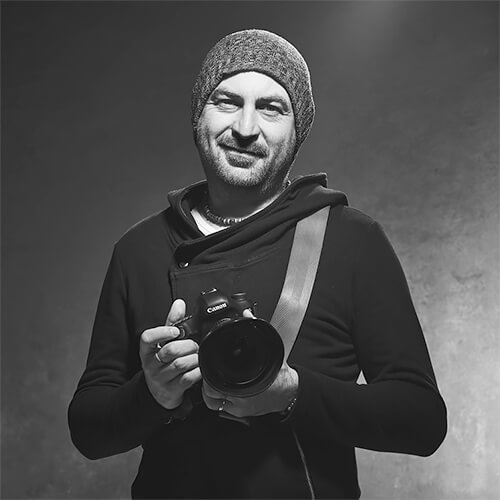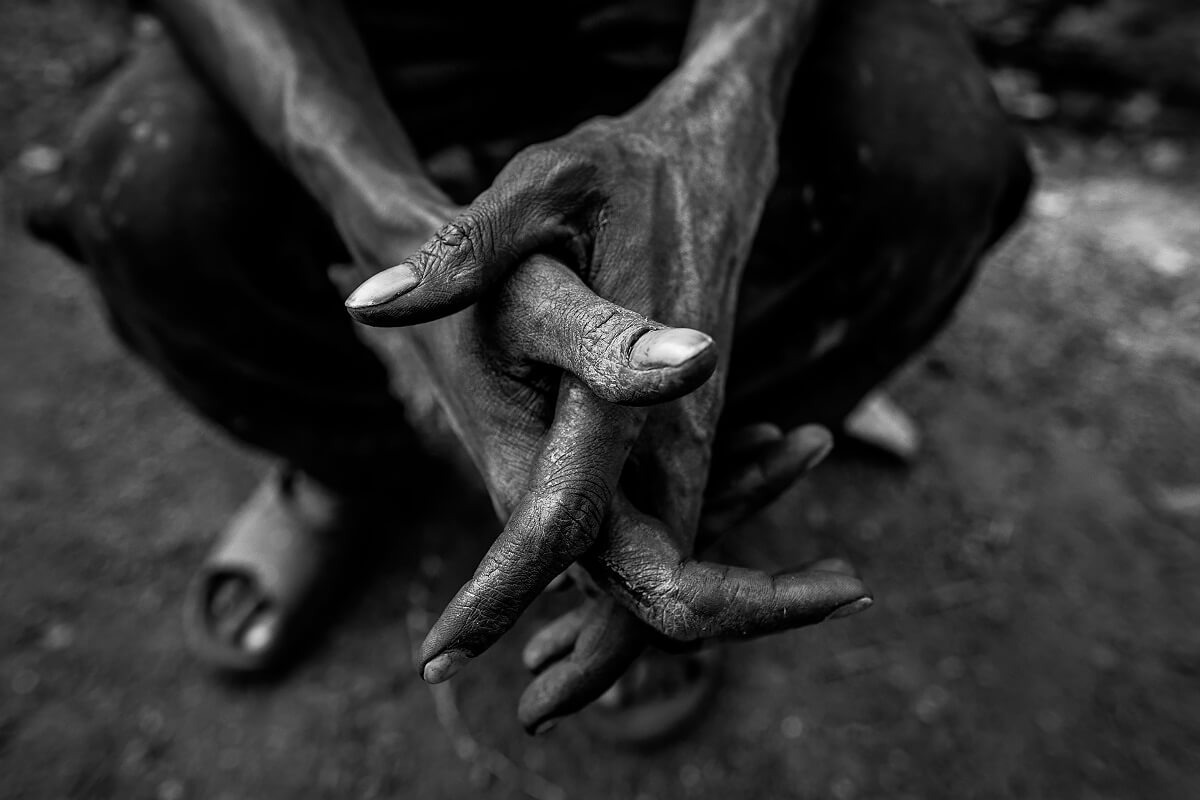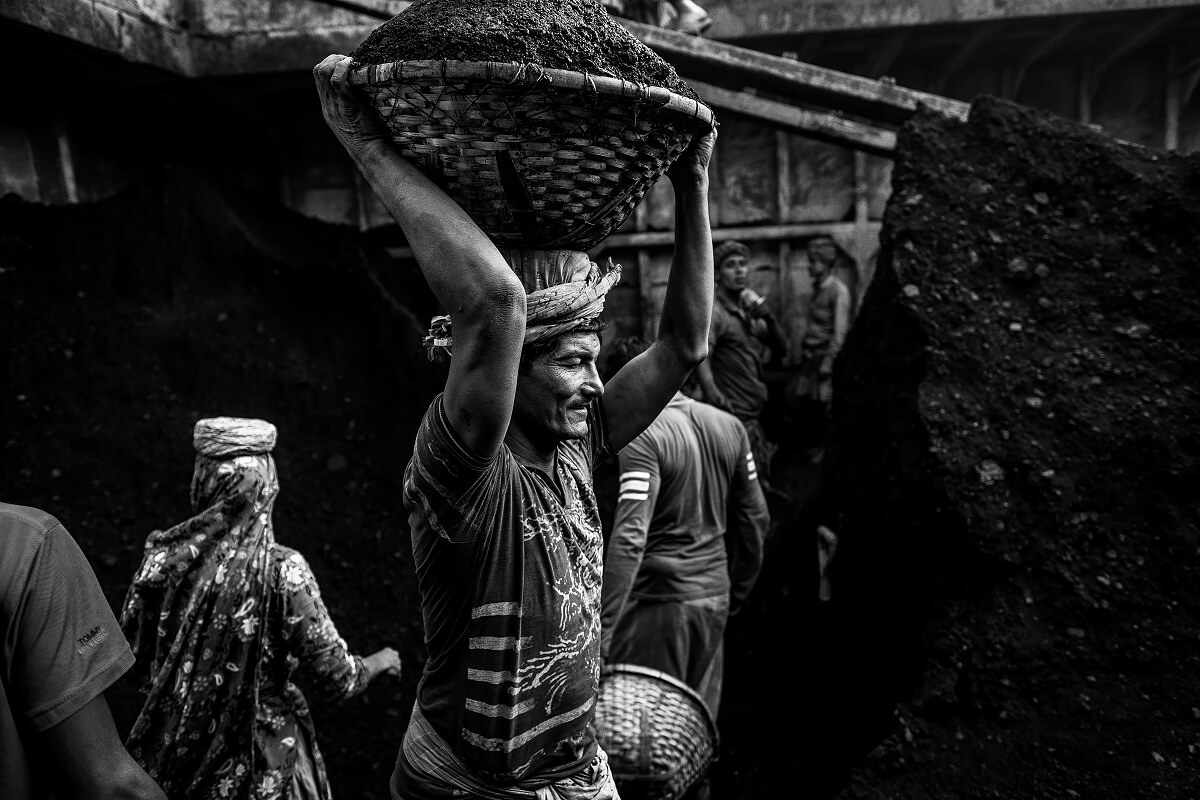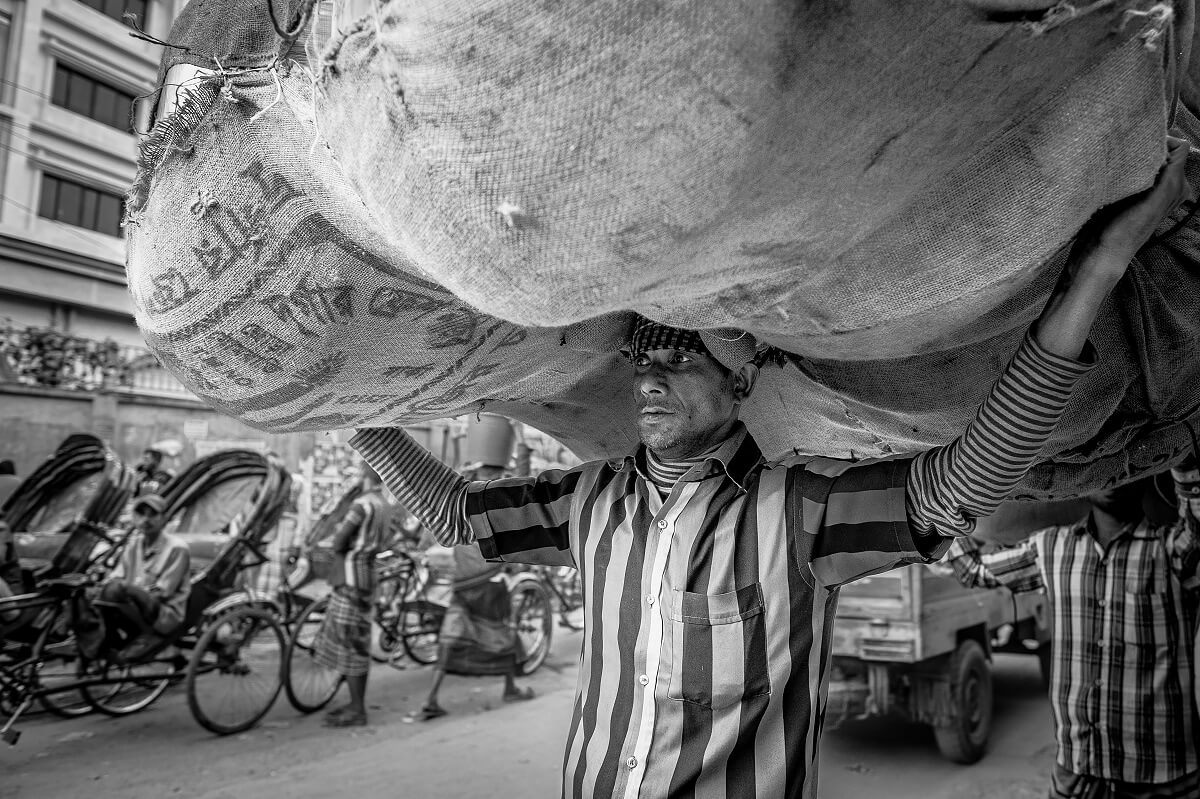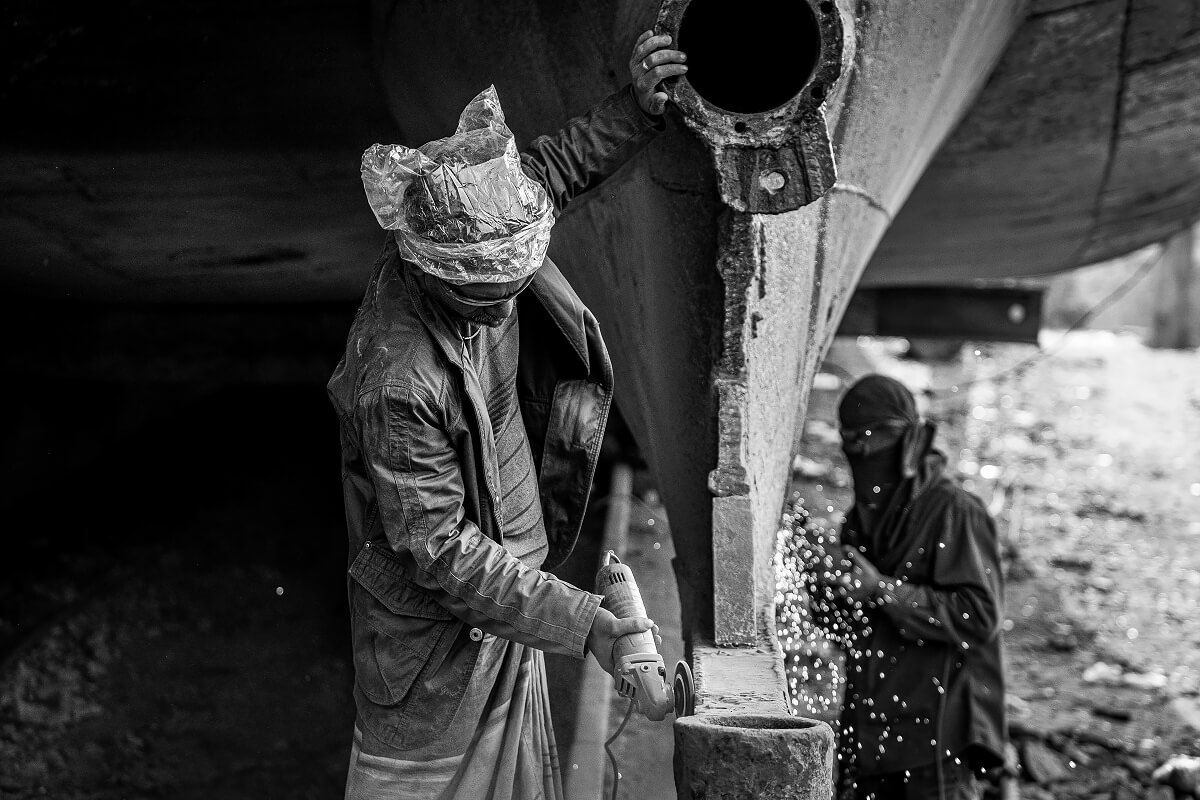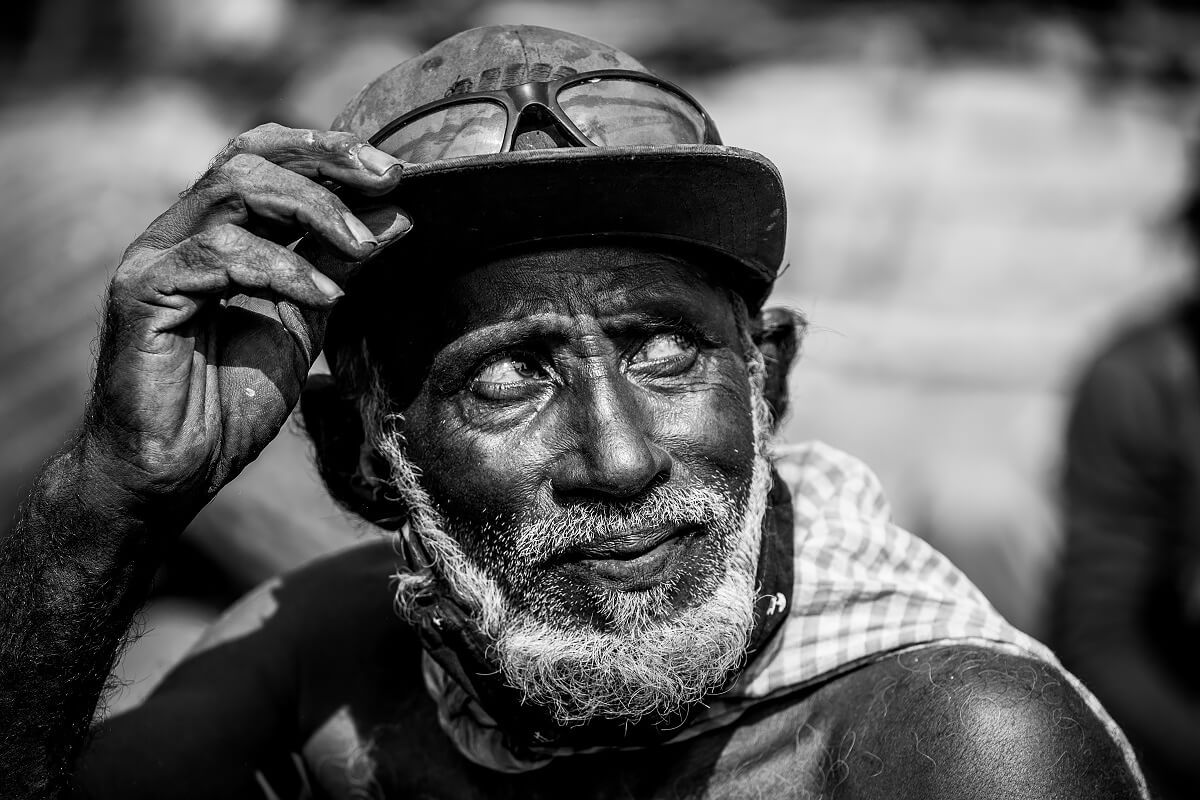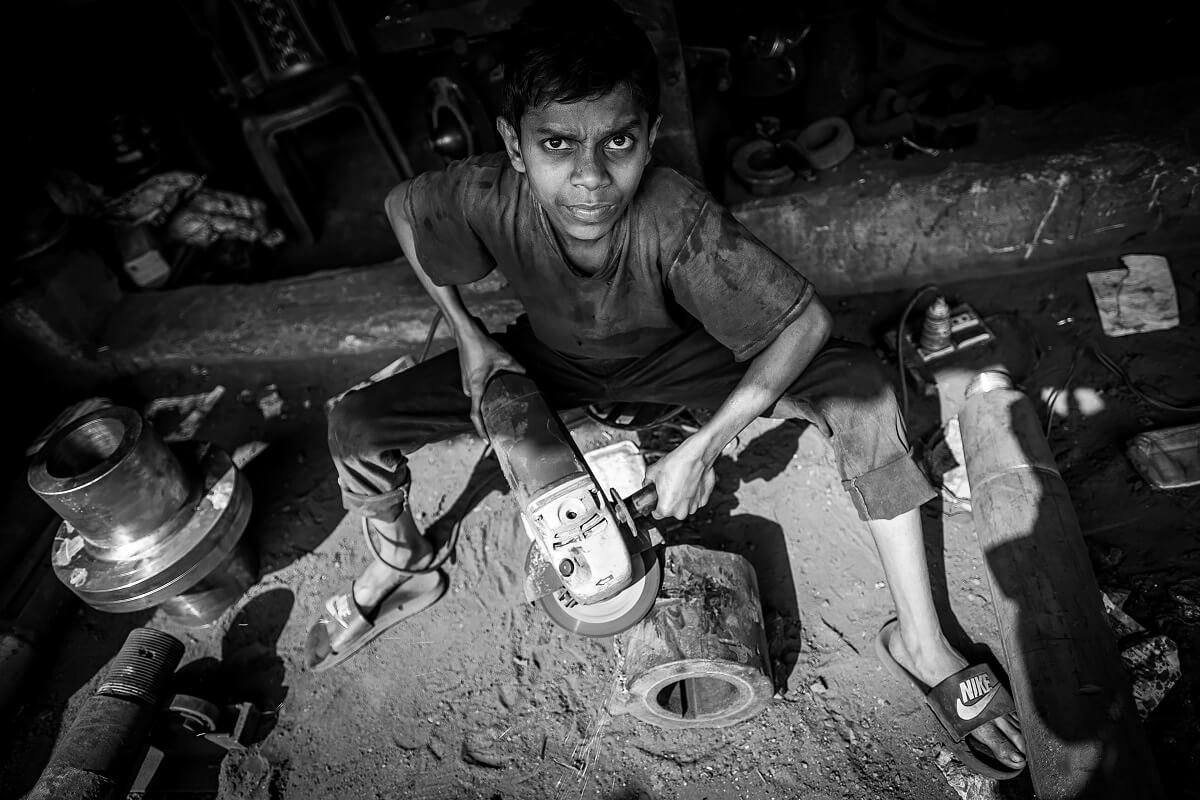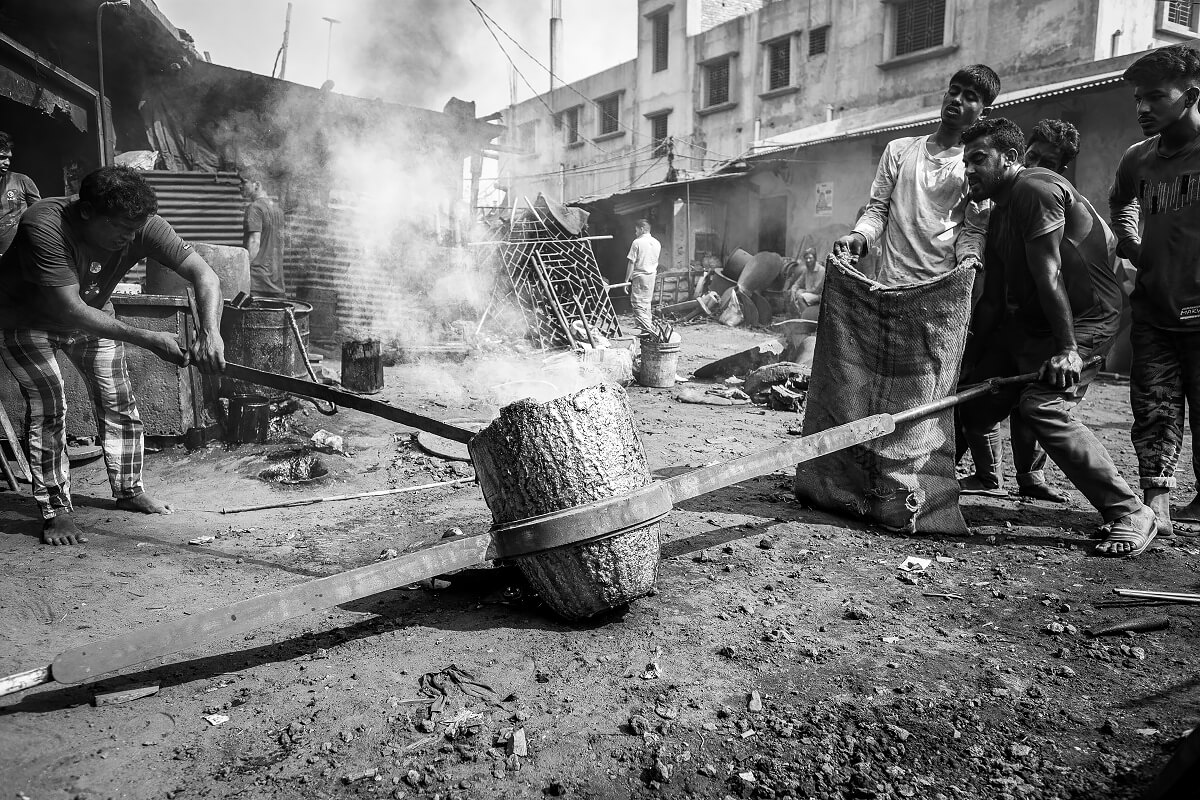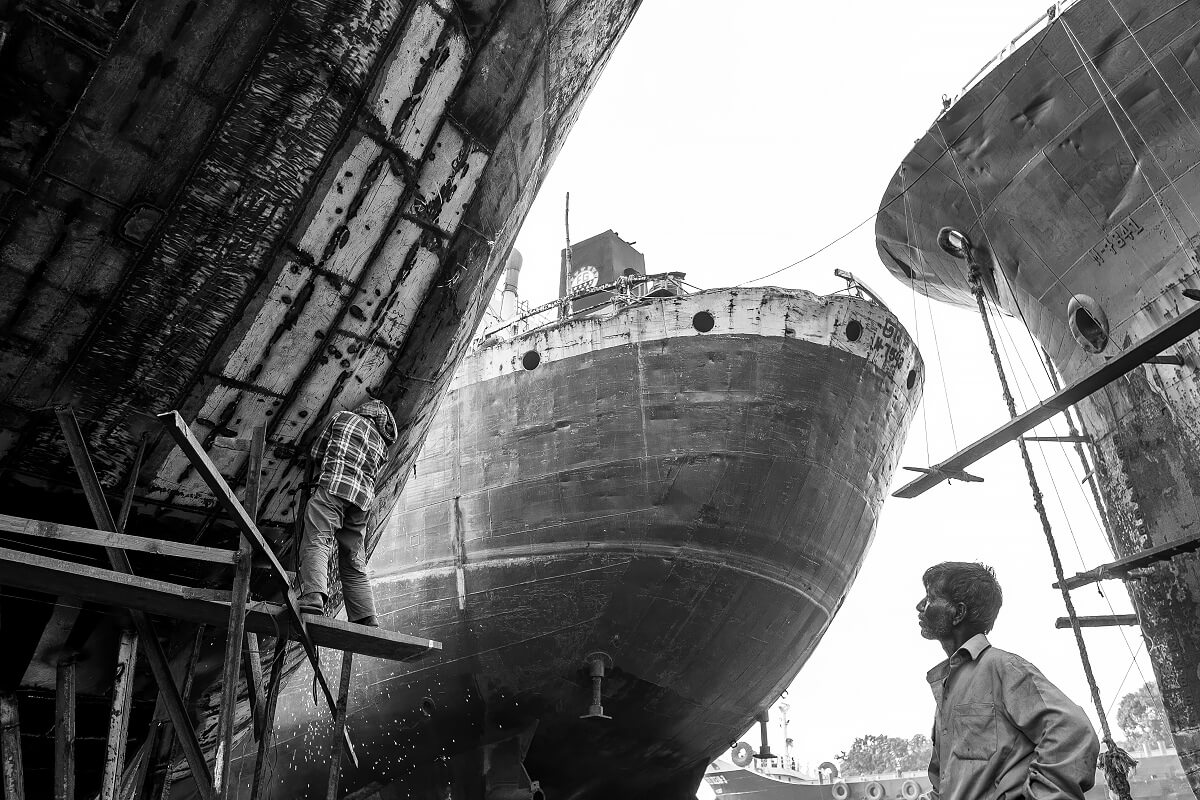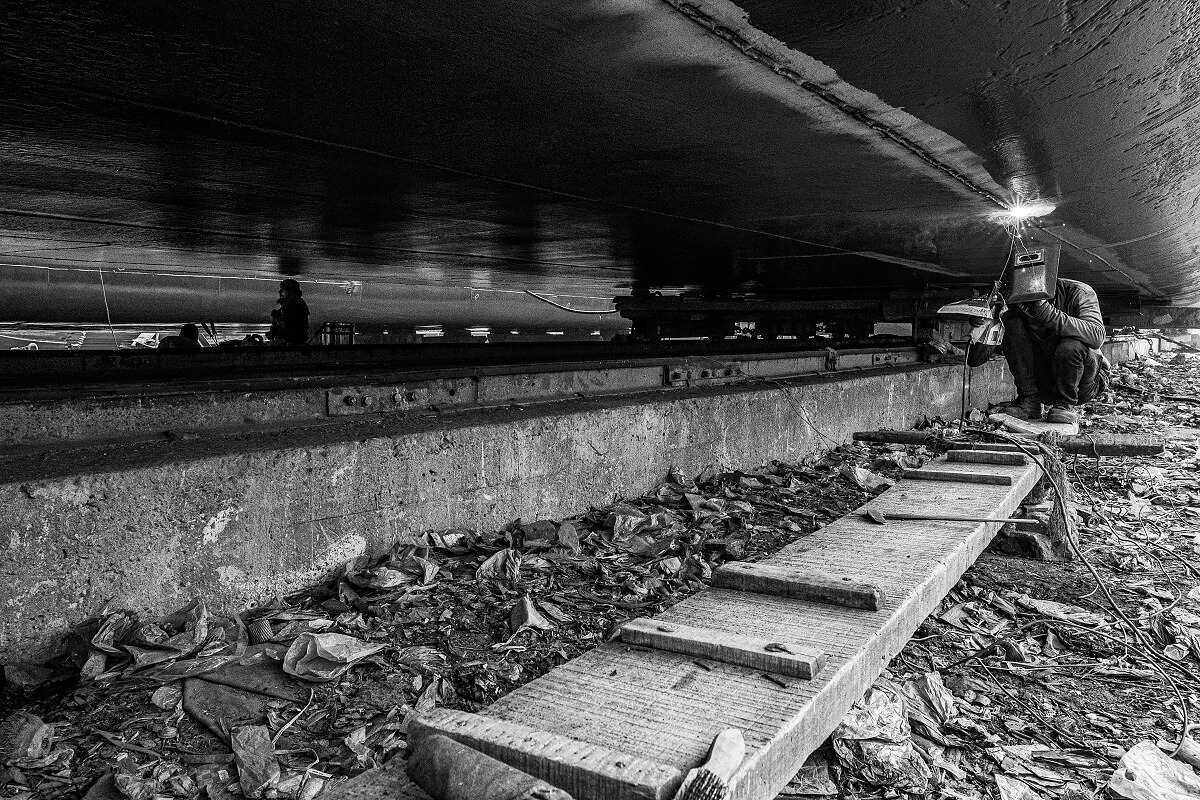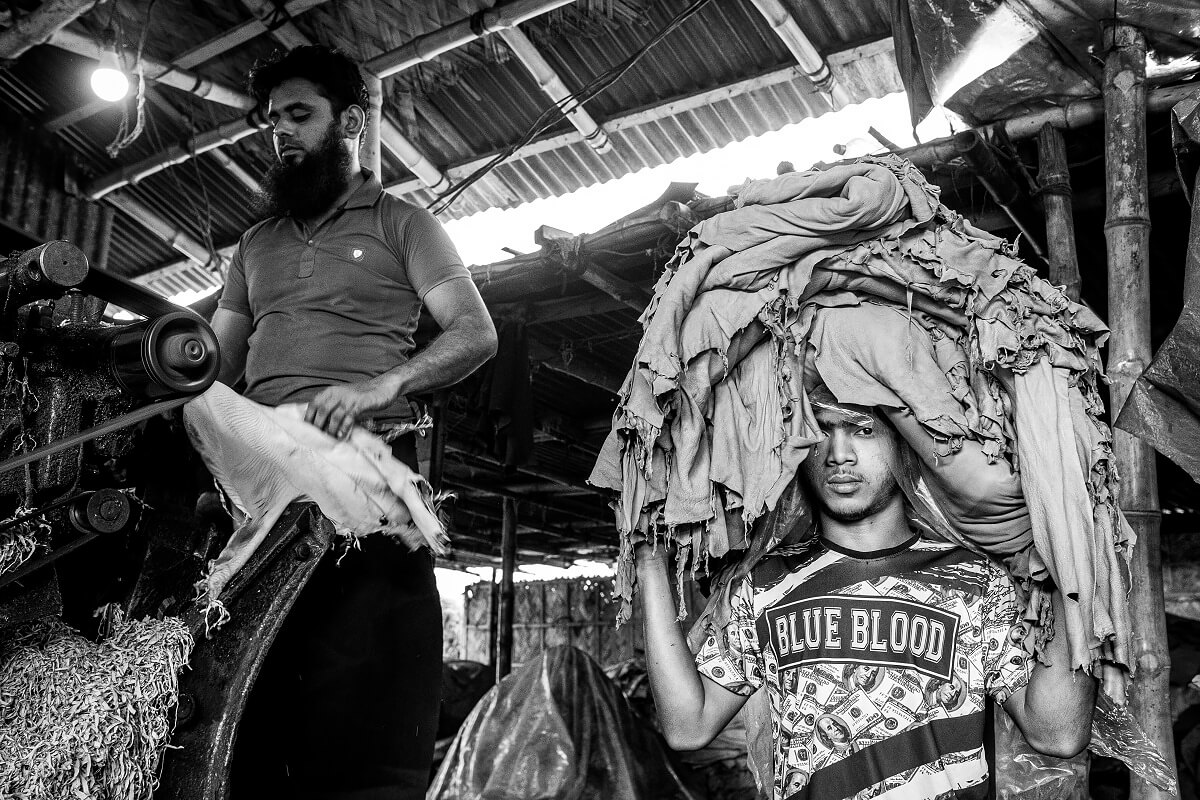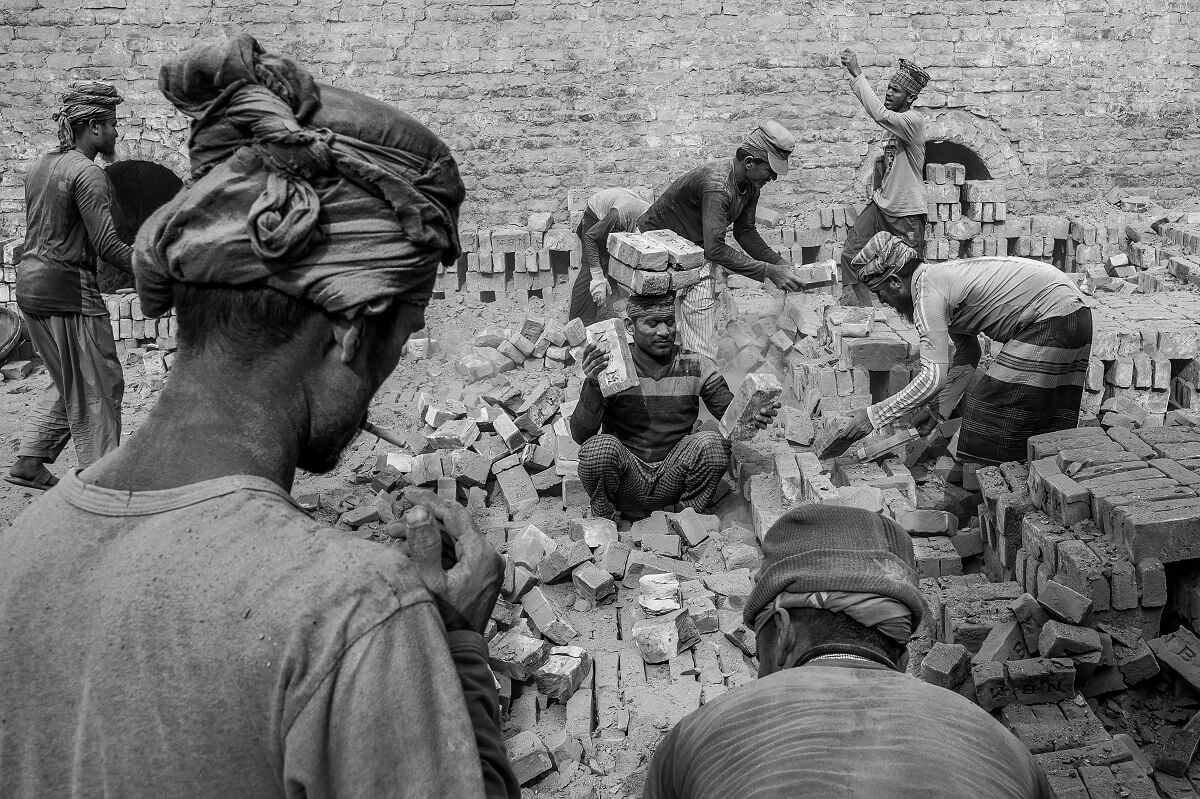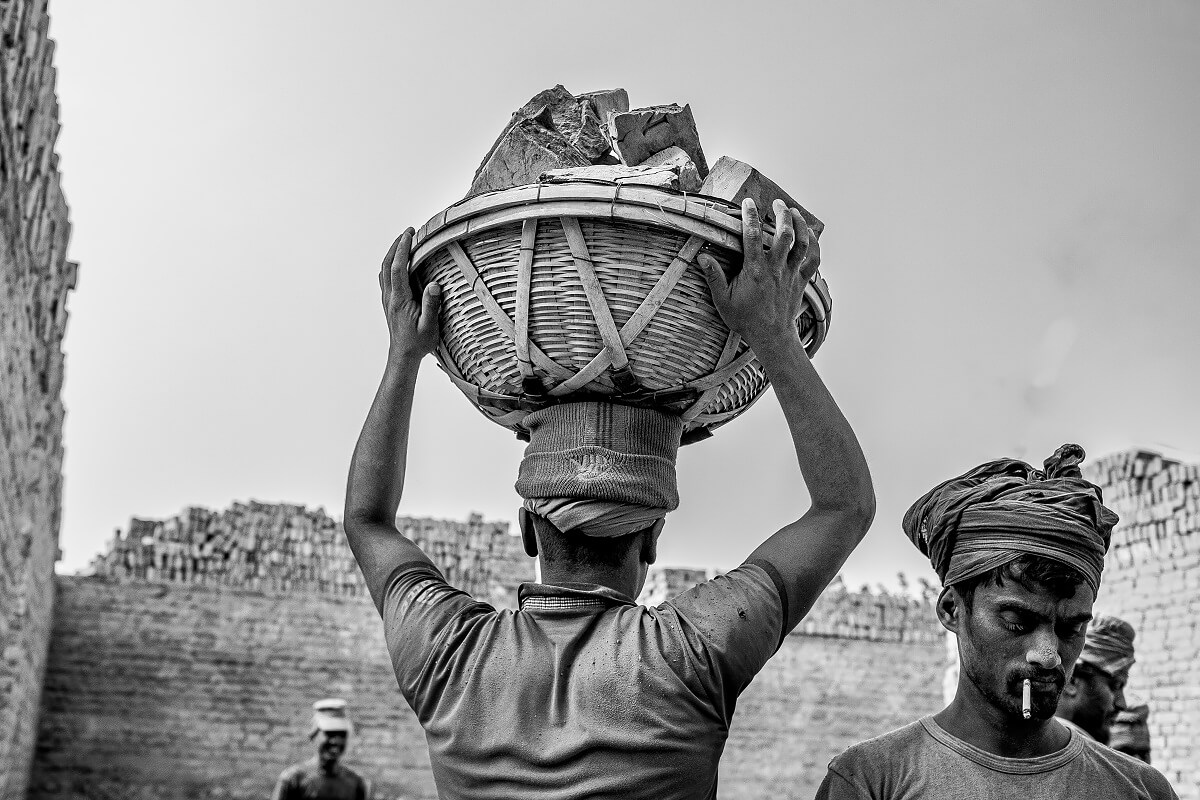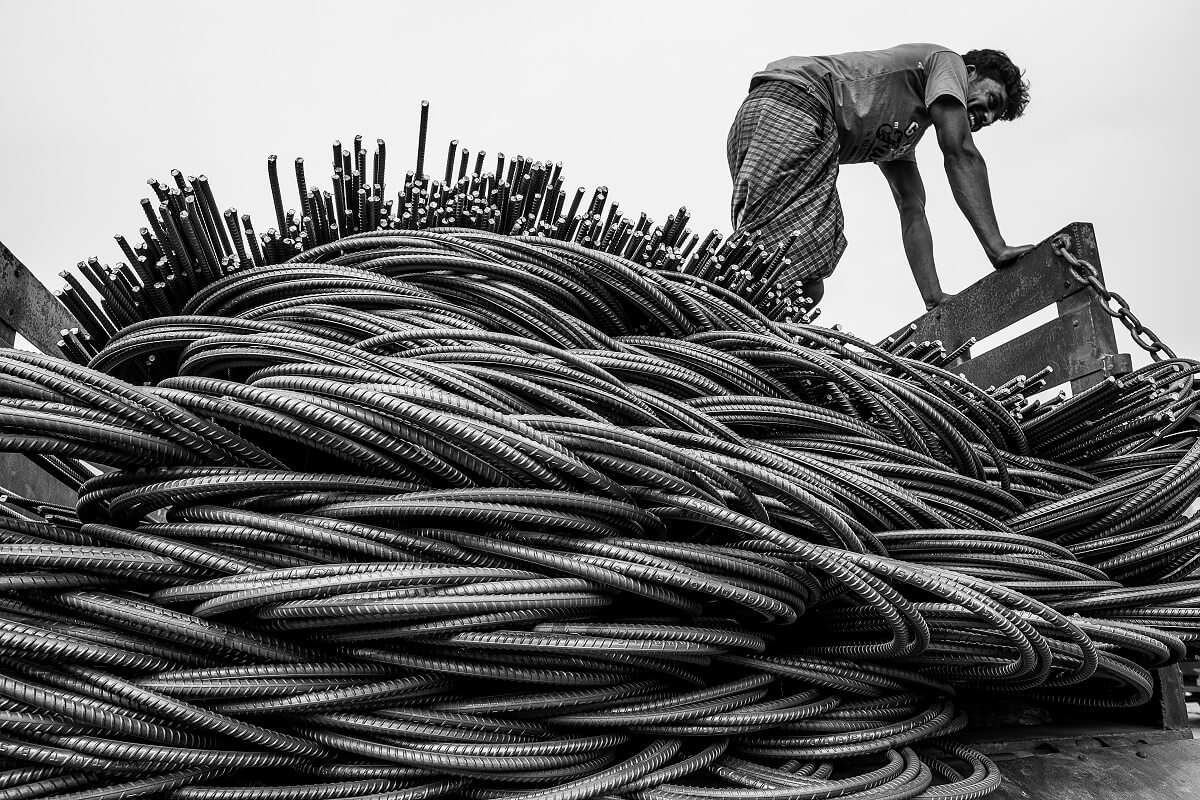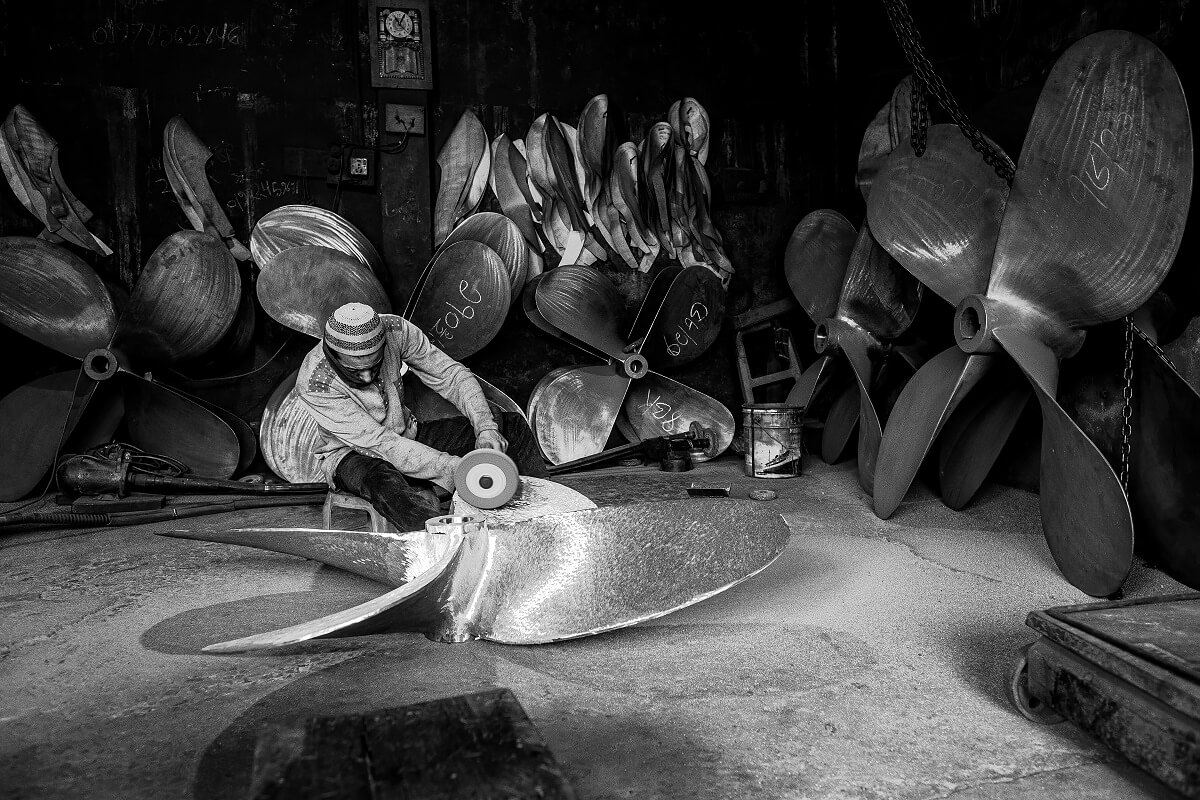The Gulf of Bengal, with a population of more than 156 million, keeps its economy
running on hard human labour every day. Across the age, gender... older children
take care of young children and infants, while parents earn money for daily
survival, medical care, housing and other daily necessities. In such working
conditions where the human body is exposed to dust, polluted water, fumes from
machines and cars for a long time. So that families do not have to waste time
commuting to work, they live in simple shelters around the shipyard, the port, or
directly in the areas where bricks are made and baked, in villages where they also
manually model clay bowls and bake them in primitive kilns. Even whole families
work on a landfill, where they sort and recycle garbage for sale to make a living.
Brave young people travel west to work in Arab countries near the Persian Gulf to
make many times more money in services, auxiliary work and gastronomy, which
they regularly send to their families in Bangladesh.
The Hard workers project introduces you to black and white photographs of
workers who work hard every day for a very small wage. For a journalist
photographer and documentary filmmaker, this country is rough but full of many
friendly people.
Jiří Šneider
Jiří Šneider was born in 1979 and bred in Český Krumlov where my home is. Photography started to fascinate me around the year 1997. I have always been attracted by black & white photography, hence this constitutes of two thirds of my work. I've focused on portrait and travellers documentary.
Recently I have developed more thanks to travelling (Ukraine, Bangladesh, Armenia and Nagorno-Karabakh, Japan...). These destinations brought up many topics and situations of people at home, at work, going out, in streets, at religious rituals...
www.jirisneider.com
@jirisneider
